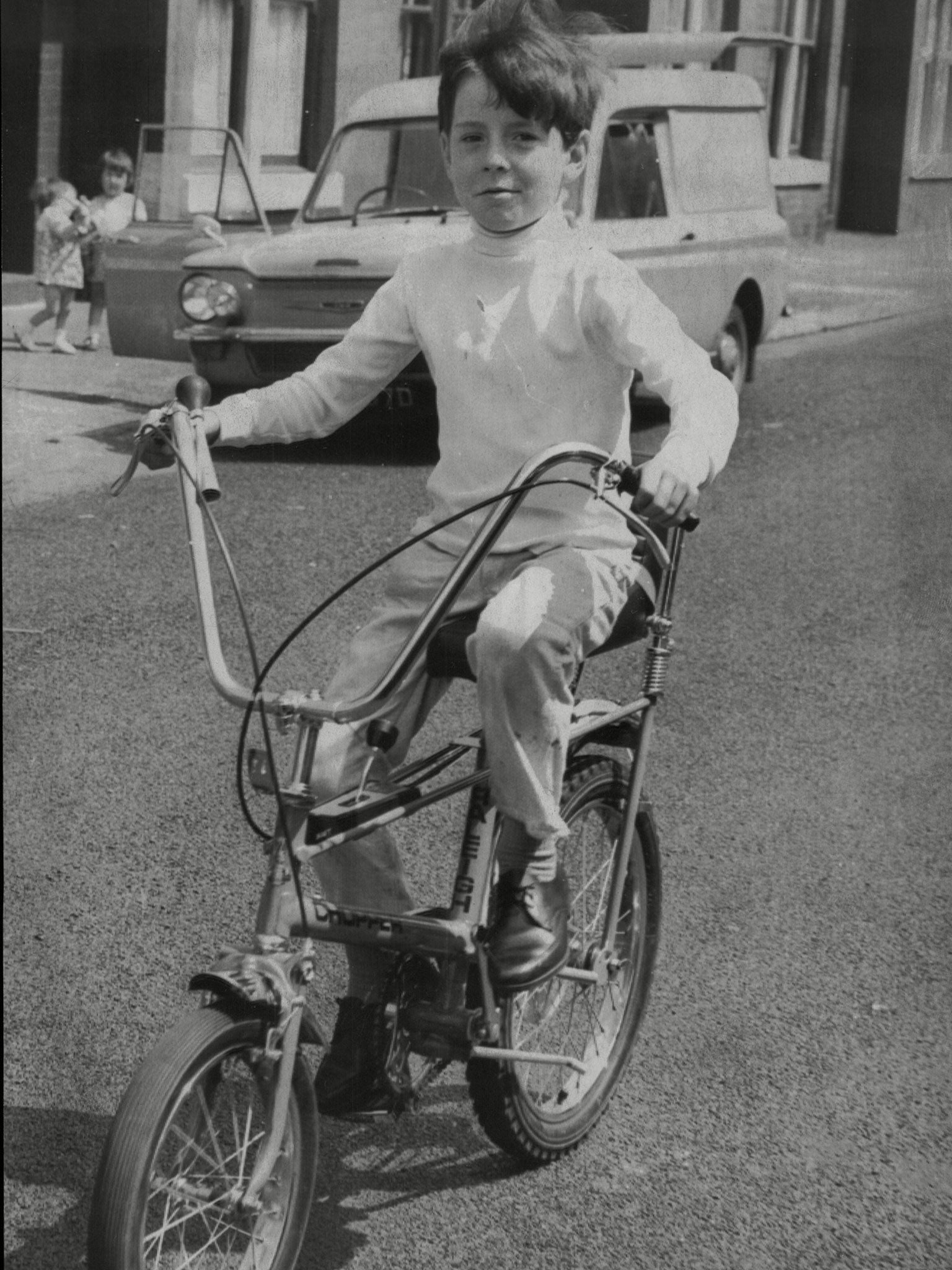Chopper bikes are not my kind of retro
I'd like to see the return of black steel cycle clips rather than fiddly, reflective 'trouser bands'

Your support helps us to tell the story
From reproductive rights to climate change to Big Tech, The Independent is on the ground when the story is developing. Whether it's investigating the financials of Elon Musk's pro-Trump PAC or producing our latest documentary, 'The A Word', which shines a light on the American women fighting for reproductive rights, we know how important it is to parse out the facts from the messaging.
At such a critical moment in US history, we need reporters on the ground. Your donation allows us to keep sending journalists to speak to both sides of the story.
The Independent is trusted by Americans across the entire political spectrum. And unlike many other quality news outlets, we choose not to lock Americans out of our reporting and analysis with paywalls. We believe quality journalism should be available to everyone, paid for by those who can afford it.
Your support makes all the difference.The relaunch by Raleigh of the Chopper bike, which had its heyday in the Seventies, received much coverage last week. The original Choppers were ridden by tough kids. They used the "ape-hanger" handlebars, the stick-shift and the generally preposterous riding posture to suggest that, for them, effete cycling would soon give way to something more motorised.
Of all the features of cycling in the Seventies, the Chopper is not the first one I would have brought back. From a purely aesthetic point of view, I'd like to see the return of black steel cycle clips rather than fiddly, reflective "trouser bands". (I would also like to see the return of men who wear their cycle clips all day.) I would welcome back the term "racer" instead of road bike. In fact, I would like to banish the whole fantasy that anything other than a tiny minority of people ever ride a bike anywhere other than on the road. But I am not against the whole world of modern cycling; I am against only half of it:
Cycling is big right now. It is said to be the new golf – popular among middle-aged men who like to spend a lot of money and wear silly clothes. This is the half that I am against. According to the proprietor of my local bike shop, Muswell Hill Bikes, "A middle-aged bloke starts cycling to work on something like that. [He pointed to a nondescript hybrid mountain bike.] He then finds he's being overtaken by older and fatter guys wearing lycra and riding carbon-fibre road bikes." So the competitive urge kicks in, and he buys a £3,000 bike and a lycra outfit.
Most middle-aged men in lycra look sausage-like. And I believe that Jeremy Clarkson and the Top Gear team once conducted an experiment whereby they established that a cyclist wearing lycra had a speed advantage of 0.00001 per cent over a cyclist wearing a tweed suit and smoking a pipe.
But I am glad to say that I see many younger cyclists looking all "Belleville Rendez-vous" in retro merino wool cycling jerseys. The popular "fixie" bike (fixed wheel and no gears) is far more elegant than the cumbersome mountain bikes that have been blighting our roads (rather than our mountains) for the past 30 years. And when those fixies have semi-dropped, "time-trial" handlebars, they look Edwardian in a way that I like and that compliments the beards and waxed moustaches their twentysomething riders often sport.
Steel-framed road bikes with leather-look handlebar tape are also making a comeback. My 20-year-old son loves his folding Brompton bike. He concedes it's "not crass" but denies it's retro, even though it's racing green and named after the Brompton Oratory, for heaven's sake. Whether the retro status of the Chopper saves it from being crass… that's another matter again.
Andrew Martin's book 'Belles and Whistles: Five Journeys Through Time on Britain's Trains' is published by Profile on 3 September
Join our commenting forum
Join thought-provoking conversations, follow other Independent readers and see their replies
Comments